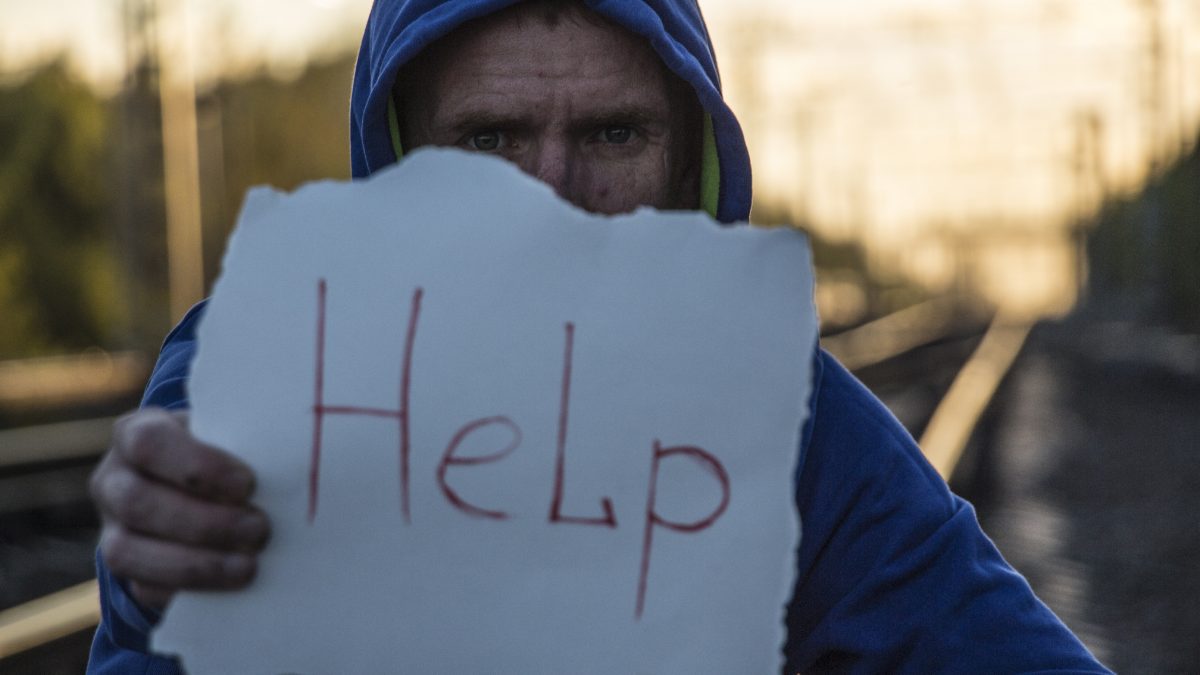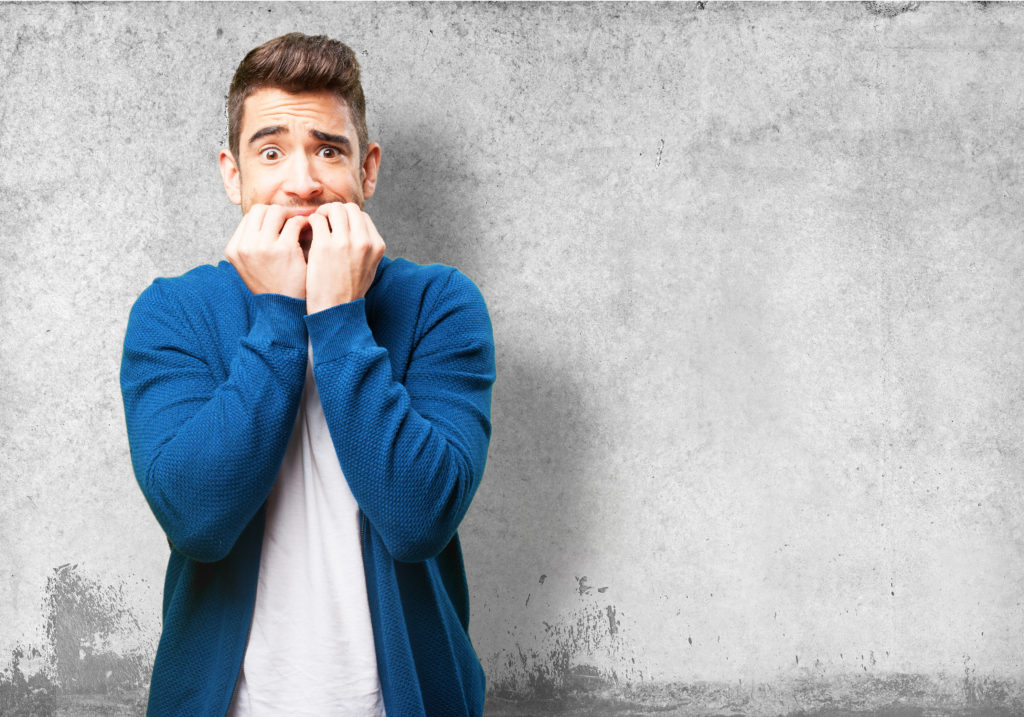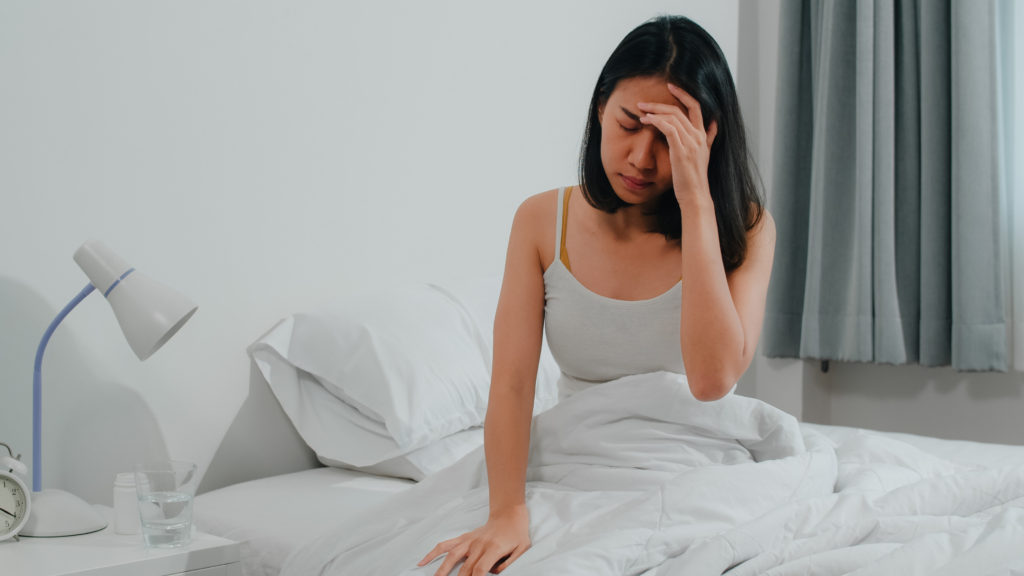
Suffering from Anxiety and Insomnia? Here’s what to do…
Most of us have been there at some point: anxiety and insomnia, or either one on its own.
These troublesome conditions can come as a pair, and with anxiety and insomnia disorders, it’s often a case of ‘what came first, the chicken or the egg?‘
Although the answer to that question is subjective, it might help to know that over half of adults with anxiety disorders struggle with insomnia too.
Tossing and turning in bed can be exasperating, and the more evasive sleep is, the more agitated you’re likely to become.
Lack of sleep makes daily life feel so much more challenging, which in turn can lead to anxiety.
On the other hand, if you started off with anxiety, the chances are you won’t be relaxed enough to sleep properly at night.
So how do we break the vicious circle of anxiety and insomnia? We’ll delve into both issues in this article, with a view to understanding and treating them effectively.
What are anxiety and insomnia about?
Anxiety

Anxiety is simply a stress response to your thoughts.
Negative thoughts (or in short, worry) normally relate your perception of probable outcomes to current life situations.
Anxiety generally relates to the future, although it can be triggered by present moment circumstances such as illness. Unfortunately, stress leads to insomnia (temporary or otherwise) in around two thirds of cases.
Symptoms of anxiety:
• Excessive worrying
• Feelings of agitation or irritability
• Restlessness and fidgeting
• Poor concentration
• Fatigue and lethargy
• Muscular tension
• Insomnia, broken sleep or nightmares
• Social introversion and difficulty relating to others
• Panic attacks (in severe cases)
Insomnia

If you have insomnia, it simply means you’re having trouble getting to sleep or staying asleep.
Disturbed sleep of any kind can leave you feeling physically and mentally exhausted, which understandably has a knock-on effect on your daily activities.
This in turn can have the unpalatable effect of altering your perception of your life, which leads to feelings of anxiety day-to-day.
Symptoms of insomnia:
• Problems getting to sleep
• Difficulty staying asleep
• Waking up early and being unable to fall asleep again
• Waking up feeling exhausted
• Emotional sensitivity and mental negativity during the day
If you’re dealing with any of the above frustrating symptoms, it’s possible that anxiety and/or insomnia have you in their steely clutches. However uncomfortable this is, try not to worry.
Worry makes the cycle even worse, but it can certainly be broken with a bit of know-how and effort.
What to do if you have anxiety and insomnia
If you treat the symptoms of one condition, you’re likely to experience relief from the other.
However, getting this right first time can depend on pinpointing the original cause.
If anxiety kicked off insomnia, treating insomnia may not fix anxiety, and vice versa.
When you’re not sure, it may be a case of trial and error―either way, it can’t hurt to try and tackle both together.
It might be worth checking in with your Doctor or health care practitioner to discuss your symptoms. This way you may be able to get some clarity and a proper diagnosis.
Here are our suggestions on treating anxiety and insomnia:
Treating anxiety
In many cases, gut health has a lot to do with anxiety. A poor diet can negatively impact friendly gut bacteria, leading to mood disorders.
Is it really that nutritious? If not, to level out your anxiety you may need proper nutrition (e.g. more vegetables, fruits, high-quality meats, fish, nuts or whole grains) and perhaps even a probiotic supplement.
While we’re on that topic, quitting toxic habits like smoking and drinking alcohol and coffee is a biggie… sorry.
Although these can feel like coping mechanisms, they’re stimulants―they also usually contain chemicals that put the body (and consequently the mind) under stress.
When tendencies toward negative thought are behind anxiety, it can really help to join a mindfulness or meditation program, or take up yoga.
Such activities can be grounding and calming, helping you to develop a more healthy perspective.
The same goes for breathing techniques: it’s amazing what a few deep breaths can do to counteract anxious feelings.
Exercise is also known to help anxiety reduction; not only does it release feel good hormones (endorphins), it also promotes energy and self-esteem.
You can start with simple exercises at home if you don’t feel like hitting the gym just yet.
Medical treatments for anxiety:
If anxiety still has a tenacious hold on you after trying these tactics, or you’re experiencing severe symptoms like panic attacks, your Doctor might prescribe you some medication or therapy.
Medications include benzodiazepines (tranquilizers) or anti-depressants, but these can cause side effects and only mask the problem until you quit them.
Therapies might include seeing a psychiatrist, psychologist or CBT (cognitive behavioral therapy) practitioner.
Treating insomnia
Sometimes it’s hard to tell how much sleep you actually got―especially when one fitful night rolls into the next.
It’s easy to be so groggy that you quickly forget which were the most problematic nights.
Get a clear picture of your sleep patterns by keeping a sleep diary, noting details of your sleep each morning when you wake.
It’s also a good idea to note your anxiety levels from the day before so that you can pinpoint any correlations or habits that led to sleep disruption.
As a first port of call, you could try some over-the-counter sleep aids, or natural, sleep-friendly supplements such as Valerian root, St. John’s Wort, melatonin, magnesium or 5HTP.
If you don’t get success this way, your Doctor may prescribe you a medication such as Zopiclone, Diazepam or Zolpidem. However, these are rarely long-term solutions and will need to be carefully monitored so that you don’t become dependent on them.
Your Doctor might suggest CBT-I (cognitive behavioral therapy for insomnia), which often proves more effective than medication. This can be a great idea since it helps you to find the root of your insomnia and work on the psychological factors behind it.
Worst-case scenario, you may need to see a sleep specialist, who might put you through a sleep study.
They’ll monitor your sleep patterns electronically in order to find the best long-term solution.
Other habits you can cultivate to treat insomnia:
• Taking fewer naps (or none at all)
• Try listening to binaural beats that alter the brainwaves to put you in a meditative state
• Quit or limit stimulants such as caffeine, energy drinks, alcohol and nicotine
• Turn off blue-light emitting devices at least one hour before bed
• Stick to a consistent bed time and wake-up time each day
When it comes to treating anxiety and insomnia, it may be a case of finding the right treatment (or combination of treatments) for you, as well as developing some healthy habits.
One way or another, you can find the solution to both. It might help to check out the Medfanatic blog for plenty more tips on general health and wellbeing!
